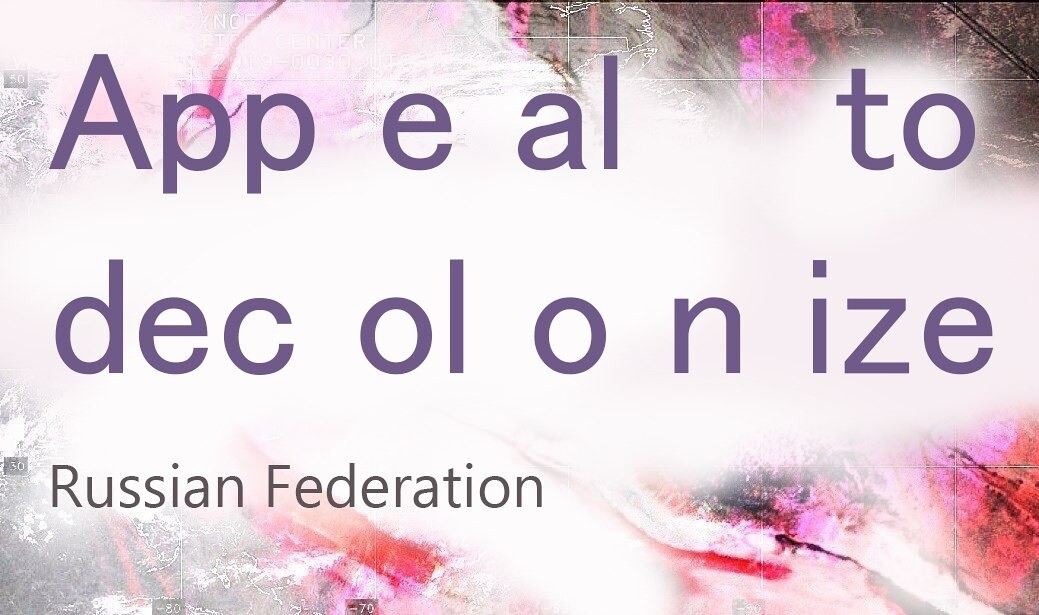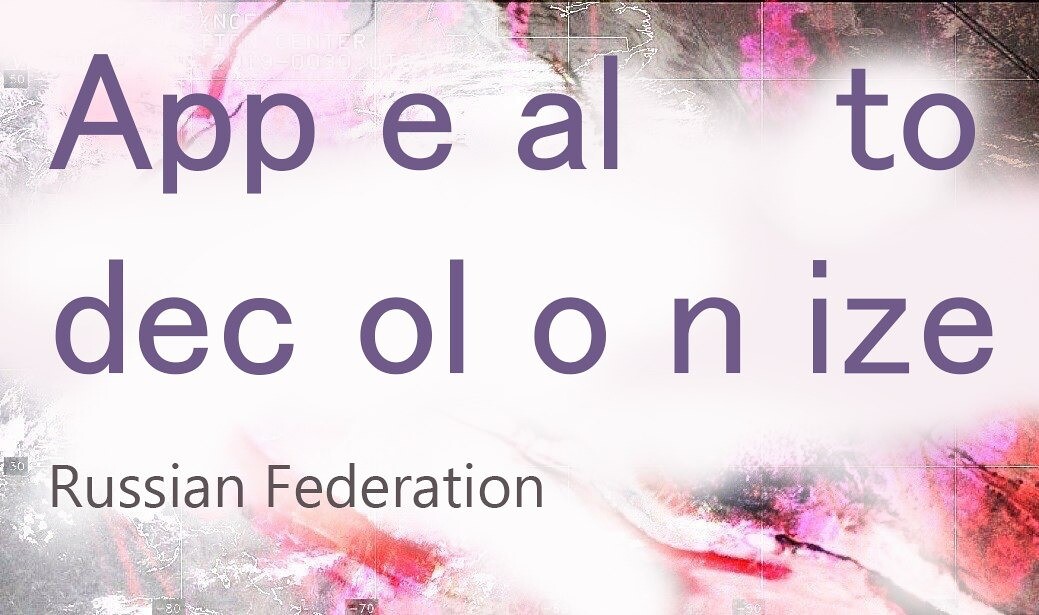

On February 24, 2022, Putin, with the support of Lukashenka, launched a full-scale attack on Ukraine. This war began back in 2014, when the Russian Federation annexed Crimea and created “people’s” republics and the DNR and LNR. Russia has engaged in similar seizures of the territories of independent states before, creating and supporting separatist movements in other states in order to make them de facto dependent on itself, as happened in Transnistria and Abkhazia. At the same time, self-determination movements on their own territory were severely suppressed, as in the case of the Chechen Republic. Today’s actions are presented by Putin as the denazification and demilitarization of Ukraine in order to “save the Russians.” Now we witness killing of civilians, shelling of civilian buildings, and a total distortion of reality through propaganda in government-controlled media.
The Russian Federation consists of many different peoples included in it during colonization. However, for many in Russia, claiming the right to self-determination can result in criminal penalties and imprisonment. Public expression of an anti-war position has recently brought about the same consequences. Therefore, our statement is anonymous and international. The working group has participants from Ukraine, Belarus, Moldova, Armenia, Kyrgyzstan, Kazakhstan, Uzbekistan, and the regions of the contemporary Russian Federation, including Tatarstan, Bashkortostan, Buryatia, the Republic of Sakha, Kalmykia, Udmurtia. In our demands, we rely on the existing appeals of the indigenous peoples of Russia,1 who distanced themselves from state structures and declared their rejection of the war.2
We accuse Putin of supporting and instigating conflicts and waging wars, of annexing the territories of other states, and of repressive governance of the country. However, we do not believe that the overthrow of his power will lead to real changes in Russia. The patriarchal-oligarchic totalitarian regime Putin built will not collapse with his departure. It is necessary to deconstruct and reorganize the entire state system.
We believe that all peoples have equal rights to self-determination (as per the International Covenant on Civil and Political Rights, Article 1) and full independence. We demand that the rights to use their own land, speak their own language, and create their own history and culture are returned to the people. We call on the people of the whole world to support the peoples of Russia in their quest for disidentification with the center. We demand peaceful destruction of the empire.
We demand regional autonomy in decision-making and local self-governance instead of a vertical, repressive-centering apparatus of power. Under these conditions, all people should have the right to participate in the political life of the region in which they live. New autonomies should be formed along territorial lines and not reproduce or create hierarchies based on “race,” religion, or origin. We do not need politics of exclusion and extermination. We need inclusion and a radical acceptance of diversity. In the conditions of these new autonomies, modern migration legislation, which is used as another way to repress people, must be revised. People should be able to freely change their place of residence.
We do not need production and overproduction when the basic needs of most of the people in the world are not covered. At the moment, the wealth of the 1 percent remains greater than the wealth of the remaining 99 percent of the world’s population. Economic growth and opportunities to earn millions are the privileges of the few who already have unlimited power. We need peace and the satisfaction of basic needs for every person. We need unconditional basic care, not an inflated law enforcement budget used for internal and external aggression.
The war in Ukraine has once again confirmed the dependence of the global economy and politics on non-renewable natural resources, which are under the control of several powerful states. The “West” is not taking sufficient action to end the war because of its dependence on Russian gas. This situation not only endangers the world, but can also lead to global ecocide. Indigenous peoples are the first to suffer from the exploitation of non-renewable natural resources and the climate crisis. Corporations know the consequences of their activities, but they do not take measures to change the format of their work, guided by profit. We demand a transition to renewable energy sources and the return of peoples’ right to determine the use of the resources on their territory.
At this moment, as before, the Russian Federation is using indigenous peoples to wage colonial wars. The resources needed to fight these wars are also obtained from their lands and their labor. We need to put an end to this. We urge everyone not to stop at calls for Putin’s departure and an end to the war, but to demand radical decolonization of the Russian Federation and granting individual subjects the right to create their own future.
As defined by the International Working Group for Indigenous Affairs (IWGIA), Indigenous peoples are peoples who find themselves on the periphery of the creation of contemporary states and who identify themselves as Indigenous Peoples. They are associated with certain territories where their history can be traced. They share the following characteristics (one or more): they speak a language other than that of the dominant group(s); there is discrimination against them in the political system; they are discriminated against in the legal system; their culture is different from that of the rest of society; they often differ from mainstream society in their resource use practices, being hunters and gatherers, nomads, shepherds or slash-and-burn farmers; they see themselves and are perceived by others as different from the rest of the population.
Statement of the International Committee of the Indigenous Peoples of Russia; “This is not your war” – the appeal of the Buryat democratic movement; Buryats against the war.
